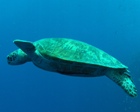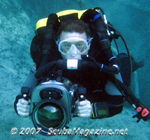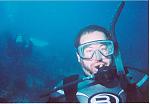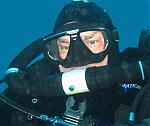Well, we're glad to have dive at the sites before closure
---------------------------------
http://www.telegraph.co.uk/earth/env...ave-coral.html
Malaysia has closed several of its world-famous diving sites including those surrounding the tropical islands of Tioman and Redang because authorities claim the coral is being killed off by global warming.
Twelve reefs that attract half a million tourists from around the world annually are now closed to divers and snorkellers until the end of October to allow the corals to recover from bleaching caused by warmer seas.
Abdul Jamal Mydin, director general of the Department of Marine Parks, said that the temperature of the seas has risen to 88F (31C) in recent months, up 4F (2C) from the normal level.
Up to 90 per cent of the coral has started to turn white meaning it is dying off, threatening the delicate ecosystem.
"We expect [the corals] to recover or at least improve." Mr Abdul Jamal said The Department of Marine Parks claimed the damaged coral was solely the result of rising sea temperatures and not tourism activities.
However, Mr Abdul Jamal explained that by banning diving, the coral will be given time to regenerate naturally.
The closures are likely to affect tourism revenue over the summer, but authorities argue the priority is to safeguard one of the country's main attractions – its coral reefs.
Environmentalists welcomed the closures, but stated that both climate change and tourism are to blame for the dying corals.
"In Malaysia, corals are facing a vast variety of threats even without the coral bleaching episodes, like uncontrolled tourism," said Yeap Chin Aik of the Malaysian Nature Society.
The Redang, Perhentian and Tiomon islands – the location for the 1958 film South Pacific – all lie less than 30 miles off the east coast of Malaysia in the South China Sea. They regularly feature in lists of the best diving spots in the world.






 Reply With Quote
Reply With Quote







